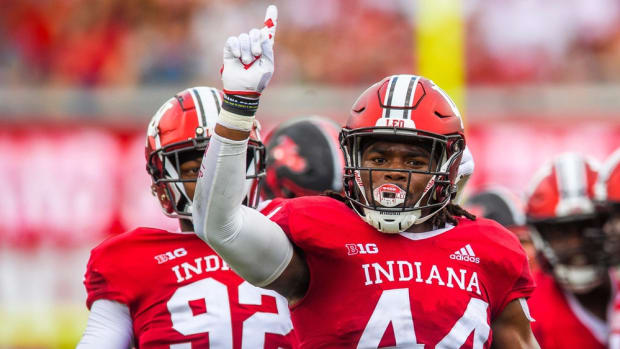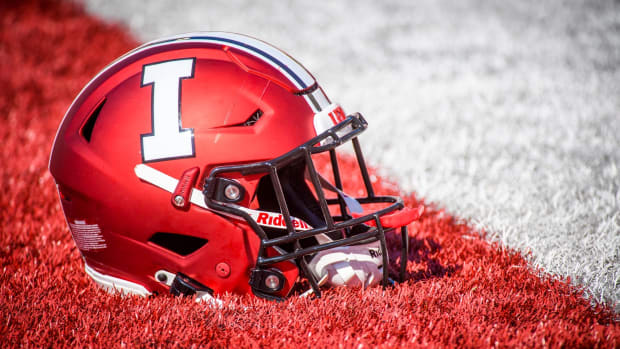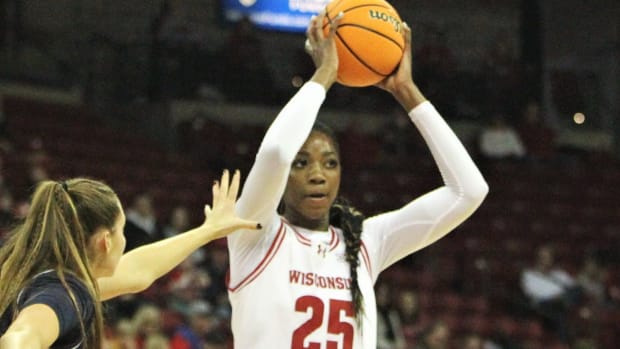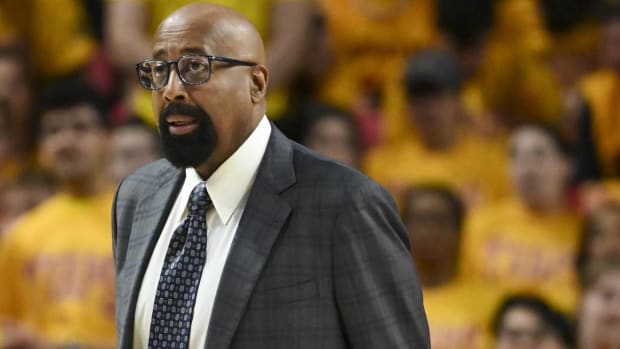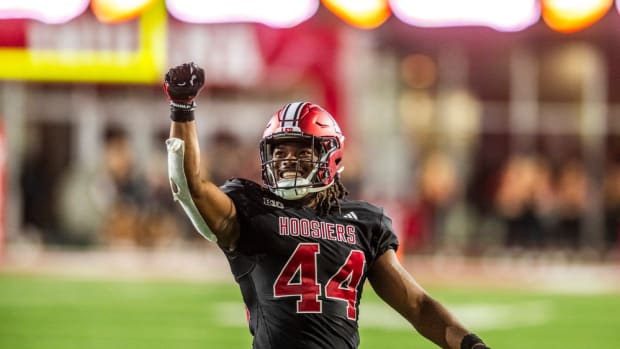My two cents: Unintended consequence of new redshirt rule could be a problem
BLOOMINGTON, Ind. — When the NCAA changed its rule on redshirting prior to the 2018 season, most everyone thought it was a good idea to let kids play up to four games a year and still be able to redshirt.
It made sense. That extra game made a difference, as did WHEN the games were played. Now it doesn't matter if you play the first four games, or the last four, or any combination in between. As long as you only play four, you're good to play college football for another year, provided you haven't redshirted a previous year, of course.
For guys who get injured or freshmen who are still learning their way, it's a great rule. They can get a taste of some game action without losing a year of eligibility. To play four seasons over five years is huge, especially for linemen on both sides of the ball who can use that extra year to get bigger and mature.
But now we're seeing a flaw in the ointment. And it's bad.
Several teams around the country that have gotten off to a bad start are seeing players simply walk away on the season after four games, just to save that year of eligibility. No one saw that side-effect coming.
It's happened at Rutgers, Indiana's Homecoming opponent on Saturday at Memorial Stadium. The Scarlet Knights started out 1-3 and fired their coach, Chris Ash, after the third loss. Nunzio Campanile, a New Jersey high school coaching legend who was hired as a position coach at Rutgers two years ago, was named interim head coach, and he vowed to try to fix things quickly.
But his starting quarterback, Art Sitkowski, and his starting running back, Raheem Blackshear, had other ideas. They came to him — the week of the game, no less — and said they weren't playing against Maryland so they wouldn't play a fifth game.
They basically quit on their teammates and their coaches.
"Am I disappointed by it? Incredibly. Do I understand it? I guess so. I guess that's the way the world is now," Campanile said after Rutgers lost 48-7 to Maryland last Saturday. "I think that this is a game about your team, you know, and it's about sacrificing personal accomplishment for the success of the team.
"But that's the world they live in, and they have got a lot of people telling them, you know, 'Worry about you, worry about you.' I get it."
Causing problems all across the country.
It's happened elsewhere as well. Houston, for instance, had lofty goals for this season. The Cougars got off to a rocky 1-3 start, so quarterback D'Eriq King, who has NFL aspirations, decided to hang up the cleats for the year to preserve a year of eligibility. So did one of his best receivers, Keith Corbin.
Now the Cougars' season is shot.
King said that he's not transferring and is coming back to Houston, but that's not the way it is with several others. Michigan State running back Connor Heyward didn't play against Indiana two weeks ago, and he said he's redshirting. But here's where it gets weird. Heyward immediately put his name in the transfer portal.
He's going to save that year — TO PLAY FOR SOMEONE ELSE!
“It’s not ideal for the sport and trying to promote teamwork.” said Jacob Hester, a former LSU running back in a Sports Illustrated story by my colleague Ross Dellinger. “It’s going to snowball. Maybe it’s old school, but I can’t imagine a guy after four weeks just shutting it down when I played.”
Player rights are a sensitive issue, and I get all that. I've argued in favor of this redshirt rule plenty, and the graduate transfer rule too, where a kid who graduates from college can go play somewhere else immediately, like Indiana basketball player Joey Brunk is doing after graduating from Butler.
I have no problem with that, because it happens AFTER the season. Now, you've got guys quitting in the MIDDLE of their football seasons, and this is just a start. Coaches, who fought for this rule for years so freshmen could get a little more playing time without losing a year, and now seeing the dark side of the rule.
Indiana coach Tom Allen was asked about the rule and what's come of it on Thursday.
Allen is all about supporting his players and the decisions they make, but he's also well aware of HIS JOB, which is to make this Indiana team the best in can be with a full complement of players.
"I think it's a good rule, but I do know that it's unique and we've never had this before,'' Allen said. "You support your guys, but at the same time, it's a head coach's job is to protect your team. There's a fine balance there.'' (There's more in the video.)
Watch Tom Allen video on redshirt changes
What Allen doesn't like is seeing kids just up and quitting on their teams after four games.
"My approach has been, and will be going forward, that I need guys who are all-in,'' Allen said. "I need players that are all in, coaches that are all in, and if you can't be all in, there's going to be a little bit of a challenge with that.
"We're all individually driven, but when there's trust there both ways, you can have a man-to-man talk about it. What I don't like is guys making these decisions and just walking away. We've had a few guys here in the last couple of years who just left without communicating with me, and I have a problem with that.'' (There's much more in the video.)
Watch more of Tom Allen on players and communication
What happens from here could get worse
Most of the time, it's going to be players who aren't making a huge impact on a team that will want to leave. But that's not always going to the case. If someone at Georgia or Ohio State or Oklahoma isn't playing much and wants to leave, those programs can deal with that.
Quarterback Kelly Bryant leaving Clemson a year ago after four games was probably the biggest name, but the Tigers won a national championship with true freshman Trevor Lawrence at quarterback anyway.
But someone like Rutgers, for instance, they're already struggling. They've been getting pounded every week for a few years now. With their two top players walking away on the eve of the game, they had no chance to compete with Maryland last weekend. They have no chance this week against Indiana, either. You feel for an interim coach who's trying to make things better.
But here's my biggest fear for middle of the pack programs like Indiana that are trying to move up the college football pecking order.
Can you imagine the upheaval if a handful of Indiana starters had walked into Allen's office the week before the Michigan State game said they weren't going to play a fifth game so they could save a year and — cringing as a I say it — transfer to another school. That would take the wind out of the sails of a season immediately.
Allen did talk a lot about how it's even more important now to have great relationships and communication skills with the players. Now that's going to be critical to have constant contact to keep a team together.
It's free agency in a way, with ever-changing rules that are flipping on the fly.
The original intent was good, but now what? Will it get worse before it gets better?
RELATED: Join our IU community and win free stuff!
- Follow Tom Brew on Twitter @tombrewsports
- Like our Facebook page @SportsIllustratedIndiana
- We're giving away a copy of my IU basketball book "Missing Banners'' as we push for 1,000 followers on Facebook and 1,200 on Twitter. So follow us and we'll draw a name for the winners when we hit those milestones.
- COMING SATURDAY: Follow our LIVE THREAD from Indiana's game with Rutgers all day

